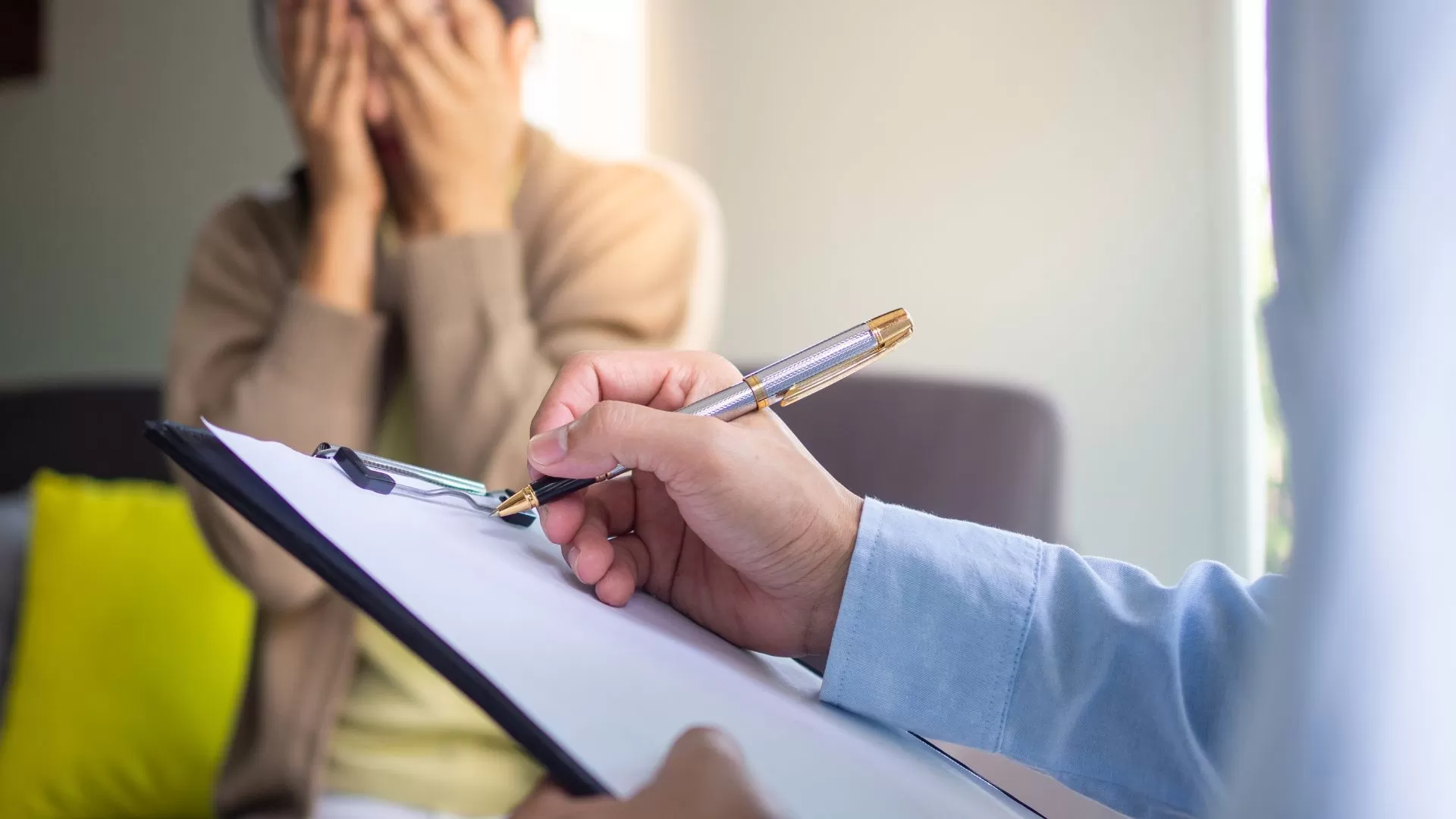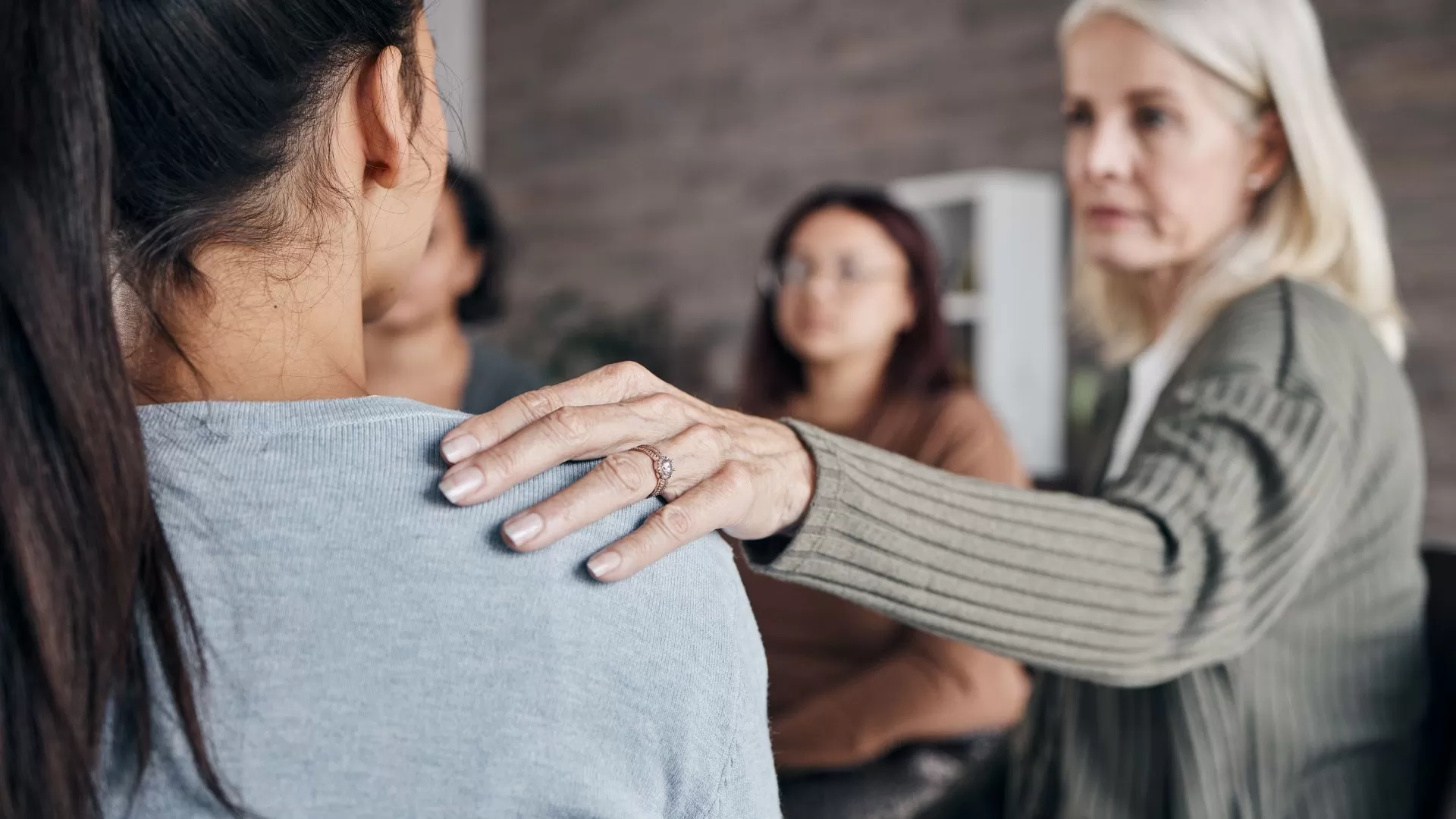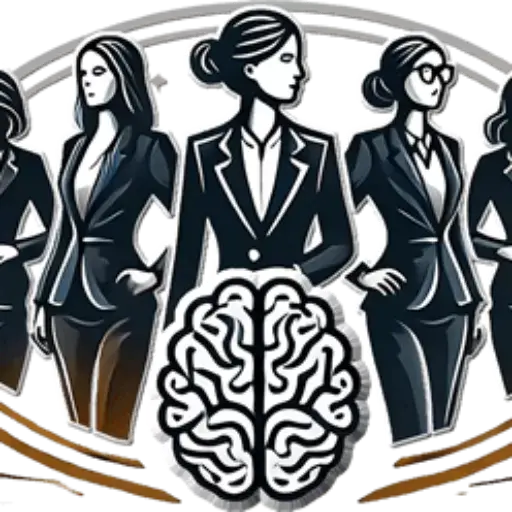Women's Mental Health Counselling Therapy for ADHD
We acknowledge the unique challenges women face with ADHD, from emotional regulation to societal pressures. Our counseling therapy focuses on creating a supportive space where these specific experiences can be explored. We recognize that symptoms may manifest differently, often leading to feelings of inadequacy or anxiety. By utilizing tailored strategies like Cognitive Behavioral Therapy and mindfulness practices, we aim to empower women to build resilience and improve their emotional well-being. Together, we can work on effective coping strategies and self-care routines that foster growth. As we support each other, you’ll discover new insights and tools to navigate life’s complexities.

About Women's Mental Health Counselling Therapy
Women’s Mental Health Counselling therapy focuses on understanding and addressing the unique challenges we face, particularly when it comes to managing ADHD in our lives. As women, we often juggle multiple roles, which can lead to increased anxiety and stress. That’s why seeking mental health counseling tailored to our experiences is vital.
In women’s therapy, we benefit from gender-focused approaches that recognize how societal pressures and expectations impact our emotional well-being. This type of therapy often incorporates trauma-informed care, acknowledging that many of us may have past experiences that influence our current mental health. By addressing these factors, we can develop healthier coping strategies and improve stress management.
Moreover, understanding ADHD in adults, especially women, is essential for our growth. It allows us to explore our symptoms in a supportive environment, helping us cultivate self-compassion and resilience. With the right tools and guidance, we can navigate our challenges, overcome feelings of overwhelm, and thrive. Together, we can foster a community that prioritizes women’s mental health, empowering ourselves and others to seek the support we deserve.
Understanding ADHD in Women: Unique Challenges and Symptoms
Steering through ADHD can be particularly challenging for us, as societal expectations often lead to misunderstandings about our symptoms and capabilities. ADHD symptoms in girls can manifest differently than in boys, often presenting as inattentiveness rather than hyperactivity. This can result in many of us being overlooked or misdiagnosed, leading to feelings of inadequacy.
Emotional regulation is a significant hurdle we face. We might struggle with impulsivity, which can complicate our relationships and daily lives. It’s not uncommon for ADHD in women to coexist with anxiety and depression, further complicating our mental health landscape. This intersection highlights the need for tailored support.
To navigate these unique challenges, engaging in women’s mental health counselling therapy can be incredibly beneficial. Gender-specific therapy allows us to explore our experiences in an empathetic and understanding environment. Additionally, utilizing ADHD coping strategies can empower us, providing practical tools to manage our symptoms effectively.

Comprehensive ADHD Assessment and Diagnosis for Women
Steering the path to a thorough ADHD assessment and diagnosis can feel overwhelming, but understanding the process is crucial for us to receive the support we truly need. When seeking an ADHD diagnosis, we must first recognize the symptoms of ADHD that may manifest differently in women, including impulsive behaviors and emotional outbursts. It’s crucial to communicate our experiences with healthcare professionals who specialize in women’s mental health support.
A detailed assessment typically involves a thorough personal history, questionnaires, and possibly interviews with family members to guarantee a holistic understanding of our experiences. This approach helps differentiate adult ADHD from ADHD in teens, which can often look different. Our unique challenges deserve attention, and accurate diagnosis is the first step towards effective ADHD treatment.
Finding ADHD support groups can also be incredibly beneficial. These spaces allow us to share our journeys and learn from others facing similar challenges. Remember, we’re not alone in this. By prioritizing our mental health care and pursuing a proper diagnosis, we’re taking a crucial step towards empowerment and improvement in our daily lives.
Cognitive Behavioral Therapy (CBT) for ADHD in Women's Mental Health
Cognitive Behavioral Therapy (CBT) offers us a powerful tool to navigate the unique challenges of ADHD, helping to reshape our thought patterns and behaviors in ways that foster resilience and understanding. In women’s counseling services, CBT specifically addresses our needs by providing strategies for anxiety management and enhancing our emotional health.
Through this therapy, we learn to identify negative thoughts related to our ADHD, which can often impact our self-esteem and exacerbate identity issues. By challenging these beliefs, we create a healthier inner dialogue that promotes personal growth and stress relief.
Moreover, CBT encourages us to set realistic goals, develop effective coping mechanisms, and cultivate a sense of control over our lives. We can explore how our ADHD affects our daily routines and relationships, allowing us to build deeper connections with ourselves and others.
As we engage in this therapeutic process, we can expect to see improvements in our mental health and well-being. Ultimately, CBT empowers us to embrace our unique experiences, transforming our relationship with ADHD into one of resilience and strength. Together, we can navigate these challenges and celebrate our progress.
Emotional Regulation and ADHD: Building Resilience and Self-Esteem
Recognizing how our thoughts and behaviors shape our experiences with ADHD paves the way for understanding the importance of emotional regulation in building resilience and self-esteem. We often find that managing our emotions can greatly improve our mental wellness. By developing effective coping strategies, we can navigate the challenges of ADHD more smoothly and cultivate a healthier self-image.
Behavioral therapy and mindfulness practices can be invaluable tools in this journey. They not only enhance our emotional regulation but also provide a sense of anxiety relief. Through psychotherapy for women, we can explore our feelings in a supportive environment, empowering us to confront difficult emotions and develop resilience.
As we practice these techniques, we may notice a boost in our self-esteem. Each small victory in managing our emotions contributes to a greater sense of self-worth and confidence. It’s crucial to remember that building resilience is a process, and it’s okay to seek help along the way. Together, we can embrace our unique challenges and thrive, transforming our relationship with ADHD into one of strength and empowerment.

ADHD and Co-Occurring Mental Health Conditions in Women
Many women with ADHD also face the challenges of co-occurring mental health conditions, which can complicate their experiences and emotional well-being. It’s not uncommon for us to struggle with anxiety disorders or depression alongside ADHD, impacting our emotional health and self-esteem. These overlapping conditions can make it harder to manage daily life, affecting our executive function and ability to cope with stressors effectively.
Understanding this complexity is crucial for our journey toward healing. Cultivating emotional resilience is essential, and we can achieve this through various strategies, including mindfulness-based therapy. This approach helps us stay grounded, allowing us to process our emotions and thoughts with greater clarity.
As we work on trauma recovery, we must recognize the importance of developing coping mechanisms tailored to our unique experiences. This might include practical tools for managing anxiety or creating supportive routines that accommodate our ADHD. By acknowledging these co-occurring conditions, we can advocate for ourselves and seek the support we need, fostering a community where women can share their struggles and triumphs in a safe space. Together, we can navigate these challenges and build our emotional well-being.
Managing ADHD Symptoms: Effective Coping Strategies for Women
Finding effective coping strategies for managing ADHD symptoms can feel overwhelming, but we can empower ourselves by exploring practical tools that resonate with our unique experiences. One key area to focus on is improving our organization skills. By creating structured routines and using planners, we can tackle time management and minimize focus issues.
Engaging in ADHD therapy can also provide us with insights into self-regulation techniques, helping us navigate impulsive decisions more effectively. Together, we can practice task initiation strategies, such as breaking tasks into smaller, manageable steps. This not only alleviates the pressure but also enhances our academic performance.
Additionally, we might find it helpful to establish specific times for tasks, allowing our brains to adapt to a predictable rhythm. Incorporating mindfulness practices can further support our ability to concentrate and manage distractions.
ADHD and Relationships: Navigating Interpersonal Challenges
Steering relationships with ADHD can present unique challenges, but understanding how our symptoms impact our connections can lead to healthier interactions and deeper bonds. We often experience relationship issues stemming from impulsivity, forgetfulness, or emotional dysregulation, which can create stress and anxiety in our loved ones. By acknowledging these challenges, we can cultivate emotional support and improve our communication skills.
Engaging in psychotherapy or gender-focused therapy can be invaluable. These therapeutic approaches help us explore our self-worth and develop effective strategies for managing ADHD and relationships. With a focus on stress reduction and work-life balance, we can learn to navigate the complexities of our connections with greater ease.
Moreover, anxiety counseling can equip us with tools to address the worries that surface in relationships. It’s important to remember that we’re not alone in this journey; many share similar experiences. By fostering open dialogue with our partners and friends, we can create a supportive environment where we feel understood and valued. Ultimately, embracing our unique challenges allows us to build stronger, more resilient relationships that thrive on empathy and mutual respect.

Women's Support Groups for ADHD: Building Community and Support
Joining women’s support groups for ADHD can provide us with an essential sense of community, fostering connections that empower and uplift each other through shared experiences and understanding. In these supportive environments, we can openly discuss our challenges, celebrate our victories, and learn from one another. Emotional recovery becomes more attainable as we navigate our ADHD journeys together, reinforcing the importance of self-care for ADHD.
These groups often focus on parental support for ADHD, helping us to better understand our roles and responsibilities while balancing our mental health advocacy. Through relationship counseling discussions, we can explore how ADHD impacts our interactions and find strategies to strengthen our relationships.
Moreover, women’s support groups can enhance our holistic wellness by incorporating social skills training, enabling us to develop effective communication techniques and build lasting friendships. Empowerment thrives in these spaces, where we remind each other that we’re not alone in our struggles. By sharing resources and insights, we create a network of understanding that nurtures our mental health and overall well-being. Together, we can cultivate resilience and inspire each other to embrace our unique journeys with ADHD.
Holistic and Lifestyle Approaches to Managing ADHD in Women
Embracing holistic and lifestyle approaches can greatly enhance our ability to manage ADHD, allowing us to nurture both our minds and bodies in a way that aligns with our unique needs as women. We can explore holistic therapy techniques, such as mindfulness meditation, which helps us cultivate present-moment awareness and emotional resilience. This practice not only aids in mood stabilization but also supports our journey through challenges like postpartum depression.
Self-care is essential for us, as it empowers our emotional trauma recovery and enhances our overall well-being. By prioritizing activities that replenish our energy—whether it’s yoga, journaling, or connecting with nature—we’re taking significant steps towards managing ADHD.
Additionally, utilizing ADHD resources, like support groups, can provide us with valuable insights and encouragement. Let’s advocate for workplace accommodations that recognize our needs, ensuring we can thrive professionally while managing our ADHD effectively.
Ultimately, our journey towards women’s empowerment involves embracing these holistic strategies, fostering a supportive community, and finding balance in our lives. Together, we can empower ourselves and each other, making meaningful strides in managing ADHD with grace and confidence.
Time Management and Organization Skills for Women with ADHD
Steering time management and organization can feel especially challenging for us as women with ADHD, but with the right strategies in place, we can create a structured environment that supports our unique needs and enhances our daily productivity. By focusing on specific organization skills, we can combat procrastination and improve our concentration.
ADHD coaching can be a valuable resource, helping us develop self-awareness about our working memory limitations and hyperactivity. Simple tools like planners, timers, and digital reminders can assist us in breaking tasks into manageable steps. We can also benefit from educational accommodations that allow a flexible approach to our schedules, helping us thrive academically and personally.
Creating a routine can enhance our time management abilities, allowing us to prioritize tasks effectively. It’s essential to recognize our tendencies and adapt our strategies accordingly. For instance, setting up designated spaces for important items can reduce distractions and streamline our daily lives. By sharing our experiences and strategies with one another, we can empower ourselves to navigate the complexities of time management, allowing us to embrace our strengths as women with ADHD. Together, we can foster a supportive environment that nurtures our growth and success.
ADHD Treatment Options: Exploring Medication and Behavioral Therapy
When it comes to managing ADHD, we can explore a variety of treatment options, including medication and behavioral therapy, to find what works best for our unique needs. ADHD medication, particularly stimulant medications, has been effective for many of us in alleviating symptoms like inattention and hyperactivity. However, non-stimulant medications can also be a valuable option, especially for those who face challenges such as ADHD and anxiety.
Alongside medication, behavioral therapy is vital in developing effective coping strategies. It helps us enhance our study skills, manage time effectively, and navigate ADHD in school settings. Through mental health therapy, we can gain insights into our behaviors and learn techniques to reduce impulsivity and improve emotional regulation.
It’s essential to remember that each person’s journey with ADHD is different. As we explore these ADHD treatment options, we should work closely with healthcare professionals to tailor a plan that supports our specific needs. Embracing a combination of medication and behavioral therapy can empower us, giving us the tools to thrive in daily life and achieve our goals.
Self-Care and Empowerment Strategies for Women Living with ADHD
Many of us living with ADHD can find strength and resilience through self-care and empowerment strategies that cater to our unique experiences and challenges. Prioritizing self-care is essential for our psychological well-being, helping us manage distractibility and low frustration tolerance. Simple practices, like setting aside time for mindfulness or engaging in sensory processing activities, allow us to reconnect with ourselves and reduce overwhelming feelings.
Women’s empowerment plays a significant role in our journey. By embracing empowerment strategies, we’re encouraged to advocate for our needs, whether in therapy or daily life. Trauma therapy and depression counseling can also be critical components, providing us with tools to navigate our emotions and experiences.
Creating supportive environments—both personally and socially—enables us to thrive. Sharing our stories fosters connection, reminding us that we’re not alone in this journey. Together, we can cultivate a community that uplifts and empowers each other. By embracing self-care and empowerment, we’re not just managing ADHD; we’re celebrating our strengths and resilience, allowing us to lead fulfilling lives. Let’s continue to support one another, recognizing our value and potential.
Addressing ADHD in the Workplace: Support and Productivity Tools
Steering through the workplace with ADHD can feel intimidating, but with the right support and productivity tools, we can create an environment that fosters focus and success. Women’s issues related to ADHD often manifest uniquely in professional settings, where inattention, restlessness, and hyperfocus can impact our performance. Recognizing these challenges is the first step toward effective management.
Implementing productivity tools like task management apps or time-blocking techniques can help us stay organized and prioritize our responsibilities. These strategies not only aid in keeping distractions at bay but also allow us to harness our hyperfocus during critical tasks. Additionally, creating a supportive workplace culture that acknowledges ADHD in the workplace can alleviate feelings of isolation and frustration.
We must also consider anger management techniques and depression treatment options as part of our holistic approach. Life changes can be particularly challenging, and having access to resources such as counseling or peer support groups can make a significant difference. By addressing these issues collaboratively, we can cultivate an inclusive environment that empowers all of us to thrive, regardless of the hurdles we face with ADHD.
Mindfulness and Relaxation Techniques to Support ADHD Management
Incorporating mindfulness and relaxation techniques into our daily routines can greatly enhance our ability to manage ADHD symptoms, complementing the productivity tools we’ve explored for a more balanced approach. By practicing mindfulness, we can improve our attention control, allowing us to focus better on tasks and reduce the anxiety that often accompanies ADHD. Simple techniques like deep breathing or guided meditation can promote emotional regulation, helping us respond more calmly to stressors.
Additionally, integrating relaxation techniques can serve as a powerful tool for stress reduction. When we notice ourselves fidgeting or feeling overwhelmed, taking a moment to engage in mindfulness can boost our self-esteem and provide clarity. These practices create a space where we can reconnect with ourselves, fostering a sense of calm that supports our overall mental health.
As women maneuvering through the complexities of ADHD, embracing these strategies can empower us in our journey. We not only learn to manage our symptoms but also cultivate resilience and compassion towards ourselves. Together, let’s explore these techniques to enrich our ADHD management and enhance our well-being.
Contact Us for Specialized ADHD Counseling and Therapy for Women
Finding the right support for ADHD can be transformative, and we’re here to provide specialized counseling and therapy tailored specifically for women beginning this journey. Our approach centers on women’s empowerment, understanding the unique challenges women face with ADHD, including how it intersects with maternal mental health, mood disorders, and even ADHD and depression.
We offer gender-focused therapy that acknowledges the nuances of your experiences, whether you’re managing the demands of motherhood or healing from past trauma. Together, we can explore ADHD productivity tools that suit your lifestyle, helping you manage daily tasks with ease while fostering your personal growth.
Our grief counseling services can also help you process any losses you’ve encountered along the way, allowing for a fuller emotional recovery. We believe in the power of connection and support, providing a safe space where you can share your story without judgment.
If you’re ready to take the next step in your mental health journey, don’t hesitate to reach out. Together, we can create a plan that empowers you to thrive while embracing your unique strengths and challenges. Let’s begin this journey towards healing and empowerment together. Contact us today!

Frequently Asked Questions
How Can I Find a Qualified Therapist for ADHD Counseling?
Finding a qualified therapist for ADHD counseling can feel overwhelming, but we’re here to support each other through it. We can start by seeking recommendations from friends or family, or checking online directories that specialize in mental health professionals. It’s important to look for someone with experience in ADHD, and we should trust our instincts when it comes to feeling comfortable. Let’s remember, we deserve the right support on our journey.
What Are the Signs of ADHD in Adult Women?
When we look for signs of ADHD in adult women, we might notice persistent forgetfulness, difficulty organizing tasks, or feeling overwhelmed by daily responsibilities. Often, we experience mood swings, anxiety, or trouble maintaining focus, especially in conversations. It’s common for us to feel restless or fidgety, too. Recognizing these signs can be the first step toward understanding ourselves better and seeking the support we deserve. We’re not alone in this journey; many share similar experiences.
Can ADHD Symptoms Worsen During Hormonal Changes?
Absolutely, we’ve noticed that ADHD symptoms can indeed worsen during hormonal changes. Many of us experience fluctuations in mood, focus, and energy levels during these times, which can amplify the challenges we face. It’s essential to recognize how our bodies and minds interact. By understanding this connection, we can better support ourselves and each other, finding strategies that help manage symptoms effectively during those hormonal shifts. We’re not alone in this journey.
What Role Does Diet Play in Managing ADHD Symptoms?
When it comes to managing ADHD symptoms, diet plays a significant role. We’ve found that a balanced diet, rich in whole foods, can help stabilize our energy levels and improve focus. Reducing sugar and processed foods often leads to better mood regulation. Plus, incorporating omega-3 fatty acids, found in fish and flaxseed, might enhance cognitive function. By being mindful of what we eat, we can support our overall well-being and manage our symptoms more effectively.
Are There Any Specific Resources for Women With ADHD?
When we think about resources for women with ADHD, we find a variety of options that can truly support us. Online communities, like forums and social media groups, provide a space to share experiences and advice. Books specifically addressing women’s ADHD can also be enlightening. Additionally, workshops and local support groups often focus on our unique challenges. We can empower ourselves by connecting with others and accessing these tailored resources.

